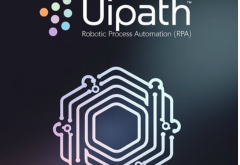Cerebras Systems, an emerging player in artificial intelligence technology, has unveiled an updated iteration of its expansive AI processor chips, likened to dinner plates in size. This new hardware release promises to deliver double the performance compared to its predecessor, all while maintaining the same price point. Headquartered in Santa Clara, California, Cerebras competes directly with Nvidia, a prominent producer of advanced hardware pivotal for powering software applications like ChatGPT, developed by organizations such as OpenAI. Unlike the conventional approach of assembling numerous individual chips to construct and operate AI applications, Cerebras has placed its bet on a singular chip roughly the size of a foot, aiming to surpass the capabilities of Nvidia’s chip clusters.
During a recent interaction with reporters, Cerebras CEO Andrew Feldman emphasized the company’s innovation journey, highlighting the remarkable progress from the initial chip to the latest version. Notably, Cerebras has managed to reduce the manufacturing process from seven to five nanometers, resulting in a chip housing over four trillion transistors, a significant leap in computational power.
Energy consumption poses a significant challenge in AI processing endeavors. Cerebras addresses this concern with its third-generation chip, which maintains superior performance while consuming the same amount of energy. This becomes particularly relevant as power costs associated with building and operating AI applications continue to rise. Cerebras opts not to sell the chips individually but rather promotes the efficiency of systems built around them for AI application development, a process known as training.
The latest offering, dubbed the Wafer-Scale Engine 3 (WSE-3), boasts an impressive specification with four trillion transistors capable of delivering 125 petaflops of computing power. This cutting-edge chip is manufactured using Taiwan Semiconductor Manufacturing Co’s 5nm process.
In a notable development, Feldman revealed that Cerebras has achieved positive cash flow. Looking ahead, the company plans to bundle its WSE-3 systems with Qualcomm AI 100 Ultra chips to facilitate the execution of artificial intelligence applications, a process known as inference.
 Latest Technology News Today – Get Latest Information Technology Updates and Services Latest Technology News Today – Get Latest Information Technology Updates and Services
Latest Technology News Today – Get Latest Information Technology Updates and Services Latest Technology News Today – Get Latest Information Technology Updates and Services 









